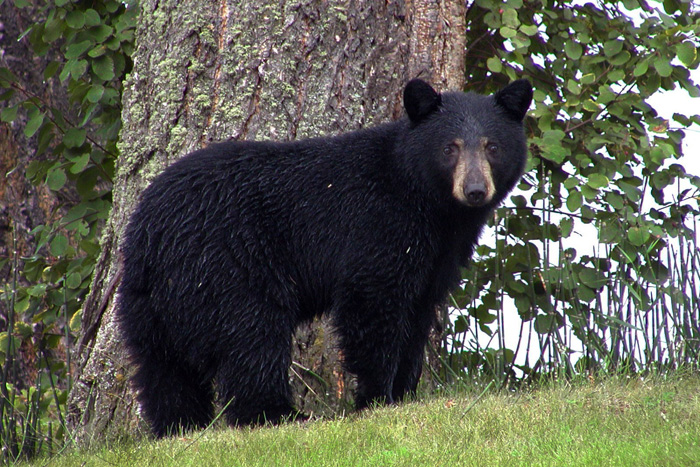Minnesota
Bear sightings on rise as they seek food amid drought

ST. PAUL, Minn. (AP) — Black bear sightings are on the rise in Minnesota, as this summer’s drought has made it harder the animals to find the food they need to prepare for hibernation.
This time of year, Minnesota’s black bears are trying to eat as many as 10,000 to 15,000 calories a day. They start to feed nocturnally and for longer periods of time on nutrition-rich acorns, hazelnuts and berries — food sources that are harder to find because of the drought. Bears are now increasingly seeking out backyard bird feeders and other food sources.
“There have been a lot of anecdotal reports of bears all over the place this year,” Andy Tri, acting bear project leader with the Minnesota Department of Natural Resources, told Minnesota Public Radio News.
The state’s bear population has remained stable for nearly a decade at between 12,000 and 15,000 statewide, Tri said. However, their range is expanding, especially into the northern Twin Cities suburbs, he said.
“So people who grew up there and didn’t grow up seeing bears are now seeing bears regularly,” Tri said.
Tri said while it’s important to be respectful of bears, there’s no need to be afraid. He advises making sure the bear has a clear path to leave the yard, then watching it from inside the house.
“Yes, it can be an intimidating experience your first couple times seeing a bear in the yard,” he said. “But in general, just take a moment to appreciate it. And then just make sure to give bears their space, because they’re wild animals.”

